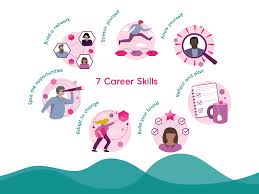1. Set Clear Goals
Define what you want to achieve through self-study. Clear goals provide direction and motivation, helping you focus your efforts on meaningful outcomes.
-
Tip: Break down larger goals into smaller, actionable steps to make them more manageable.
2. Create a Dedicated Study Space
Having a quiet and organized space for studying can improve focus and productivity. Ensure your study area is free from distractions.
-
Tip: Keep your study space well-lit and stocked with necessary materials.
3. Develop a Study Routine
Consistency is key to effective self-study. Establish a routine that aligns with your natural energy levels and daily schedule.
-
Tip: Use time management techniques like the Pomodoro Technique to maintain focus and prevent burnout.
4. Leverage Online Resources
From online courses to educational videos and eBooks, the internet offers a wealth of resources for independent learners.
-
Tip: Explore platforms like Coursera, Khan Academy, and YouTube for high-quality content.
5. Practice Active Learning
Engage with the material actively by taking notes, asking questions, and summarizing key points. Passive reading or listening alone won’t yield effective results.
-
Tip: Teach what you’ve learned to someone else to reinforce your understanding.
6. Track Your Progress
Monitoring your progress helps you stay motivated and identify areas that need improvement.
-
Tip: Use journals, apps, or spreadsheets to record milestones and accomplishments.
7. Stay Curious and Open-Minded
A growth mindset fosters continuous learning. Be open to new ideas, perspectives, and challenges.
-
Tip: Don’t hesitate to explore topics outside your comfort zone; they may spark unexpected interests.
8. Seek Feedback and Support
Although self-study is independent, seeking guidance from mentors, peers, or online communities can provide valuable insights.
-
Tip: Join forums or social media groups related to your subject of interest.
9. Take Breaks and Practice Self-Care
Avoid burnout by balancing study sessions with regular breaks and self-care activities.
-
Tip: Incorporate activities like exercise, meditation, or hobbies to recharge your mind.
10. Evaluate and Adjust
Regularly assess your study methods and make necessary adjustments to improve your efficiency and results.
-
Tip: Experiment with different techniques and tools to discover what works best for you.
Self-study is a powerful way to take control of your learning journey. By setting clear goals, staying disciplined, and embracing a growth mindset, you can master the art of independent learning and unlock your full potential.

